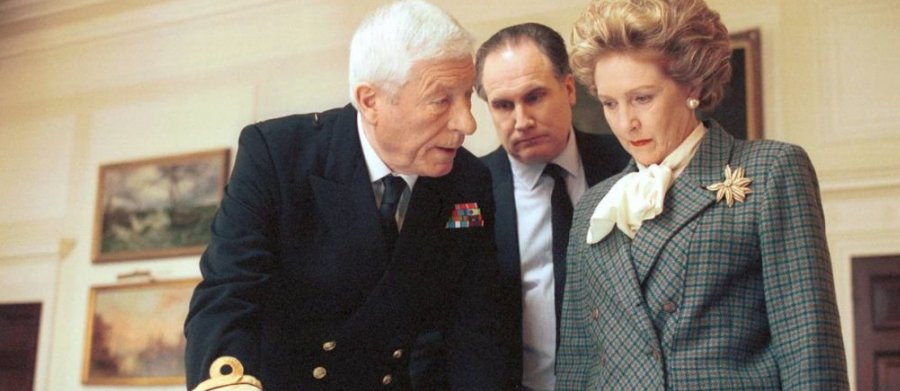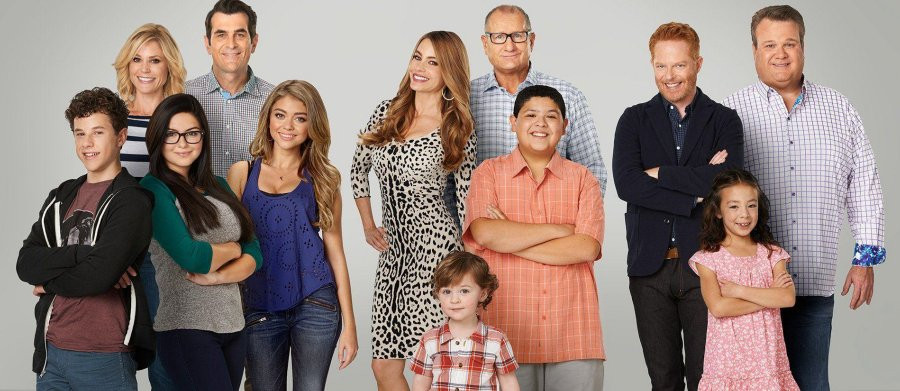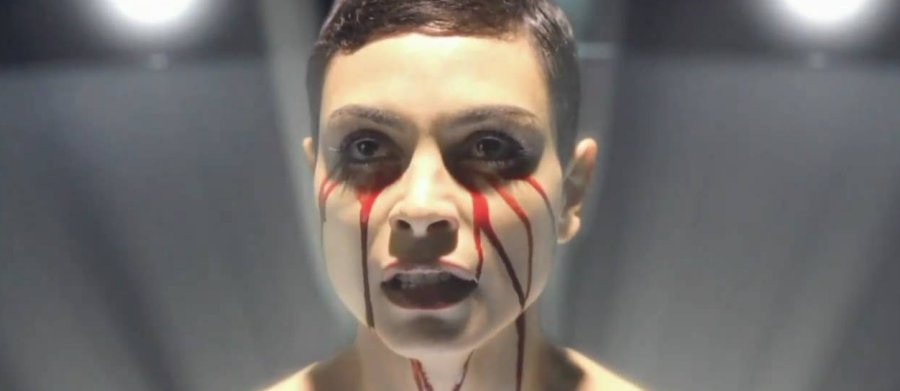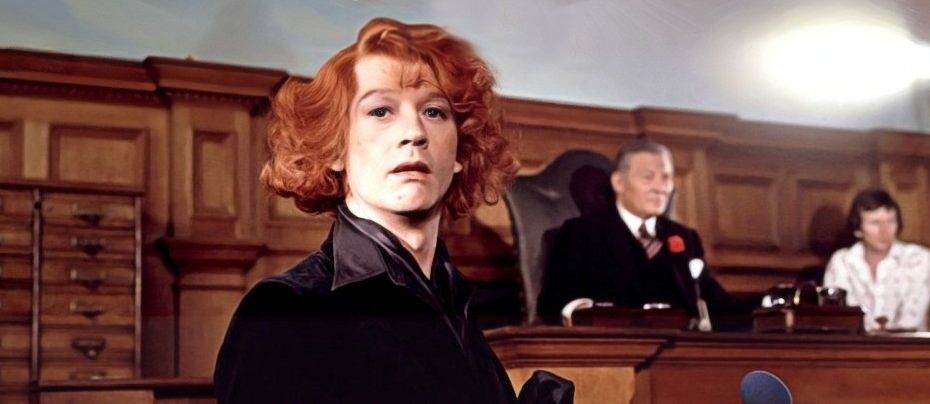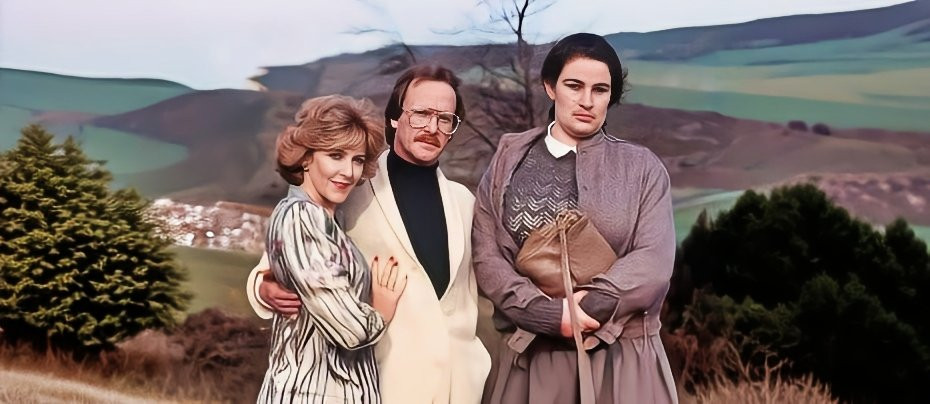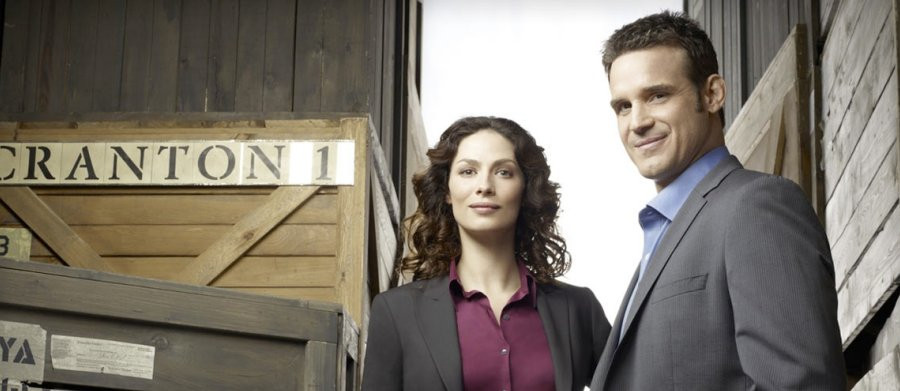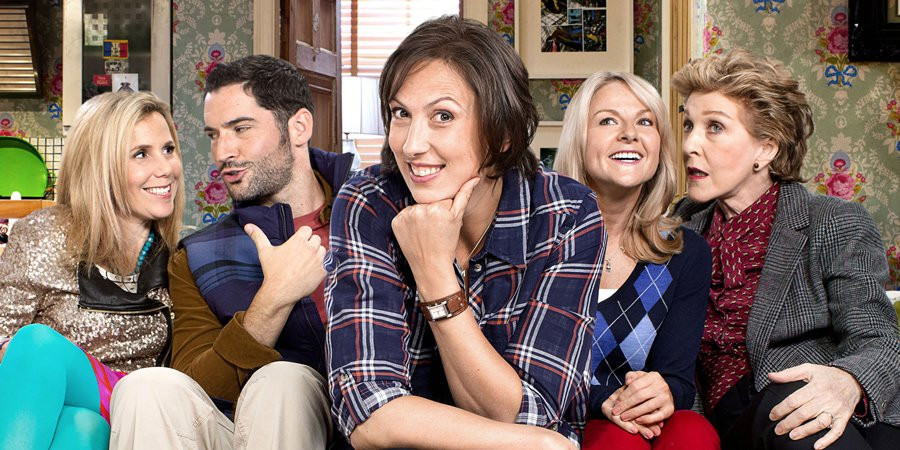
Miranda
2009 - United KingdomReview: John Winterson Richards
It is sometimes said that the British comedy Miranda was a surprise hit. It is also said that it divides opinion. Both statements are true, but subject to qualification, and may say more about the people making them than about the show itself.
The people who now dominate television comedy, in Britain as in the United States, tend to be of a certain type - relatively young, trendy, and metropolitan. They also tend to forget, or prefer to ignore, that most of the rest of the population - their audience - are not like them.
So they never really understood the appeal of Miranda, a deliberately old fashioned "sitcom" made by, for, and about middle aged, middle class, white people. The eponymous Miranda herself is a privately educated small businesswoman. While the show was resolutely apolitical - a black mark in itself in some books - some of the characters look as if they might actually vote Conservative and yet are not conspicuously evil. In fact they were hugely likeable.
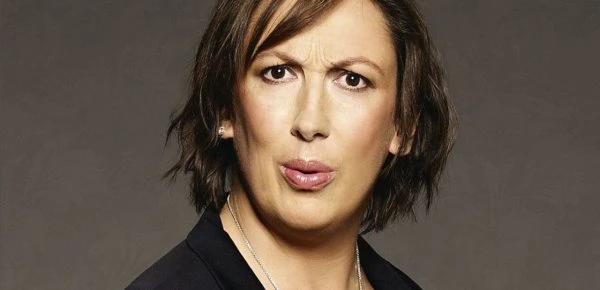
The very idea that this was more popular than most of their own pet projects offended much of Britain's cultural Establishment. This was why a show that was in many ways a masterpiece of BBC craftsmanship and the product of immense comedic literacy never got the respect it deserved from many supposedly professional critics.
The irony is that the trendy critics miss the point that Miranda is arguably one of the most successful feminist shows ever made. It was written from a woman's point of view and the male cast was completely overshadowed by four great performances by women - Miranda Hart, Patricia Hodge, Sally Phillips, and Sarah Hadland.
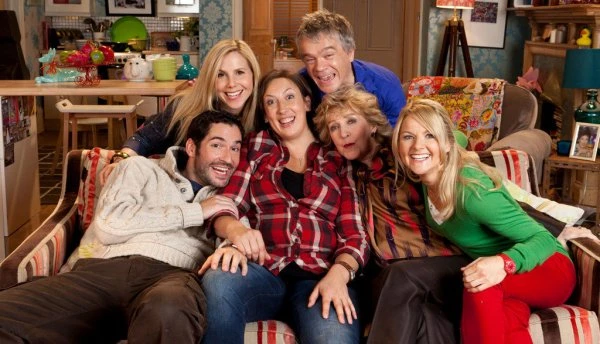
Above all, it offers a realistic portrait of the life of a modern single woman of a certain age - and if anyone objects to this by claiming that the woman in question is very unusual, that is the whole point: women are all different, and as they get older their individual characters become more distinct and, from a discerning male perspective, more interesting.
The "situation comedy" about a single woman, or single women, looking for love is a well established sub-genre, from The Mary Tyler Moore Show to Fleabag. One might call it the "romcom sitcom."
There is a great variation in the quality of such shows, from the excellent Rhoda all the way down to Two Broke Girls, but most share the same weakness: the heroines are almost invariably very attractive, at least in the physical sense. This is presumably a commercial decision intended to appeal to male viewers, or at least keep them on the sofa while their wives or girlfriends invest in the Cinderella story.
The problem is that this undermines the whole concept of the Cinderella story. The audience is asked to believe that an obviously attractive woman is having trouble finding a man and to care about that. Indeed, as the seasons go by, such heroines usually have no trouble finding a series of men, only to discard them or be discarded by them, so that when they finally land "Mr Right" in the finale we are left wondering how long it be after the cameras stop rolling before there is another discarding.
All this feeds the male fantasy that there are countless attractive women out there desperate, absolutely desperate, for men. This rather negates the feminist credentials such shows usually claim.
By contrast, Miranda shows a genuine feminist sensibility without using the f-word. The protagonist is realistic in that she is not unrealistically attractive, at least in the physical sense - sorry, Miranda. She becomes more attractive as we get to know her. We get to like her for her sense of humour, her intelligence, her good intentions, her inventiveness, her childlike view of the world, her defiant individuality, in a word her personality. Yet this has its imperfections. She is gauche, clumsy, and often ignorant. The delightfully childlike can become annoyingly childish.
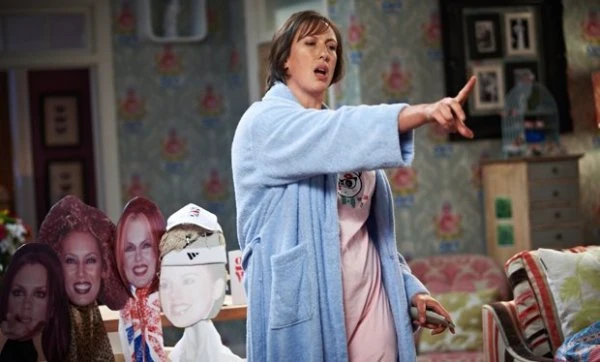
All this only goes to make her all the more realistic - and therefore more attractive. She is a fully rounded - sorry again, Miranda, no offence meant - three dimensional woman. Like her fantasy object, played by Tom Ellis, we come to love her not in spite of her flaws and vulnerabilities but, in part, because of them.
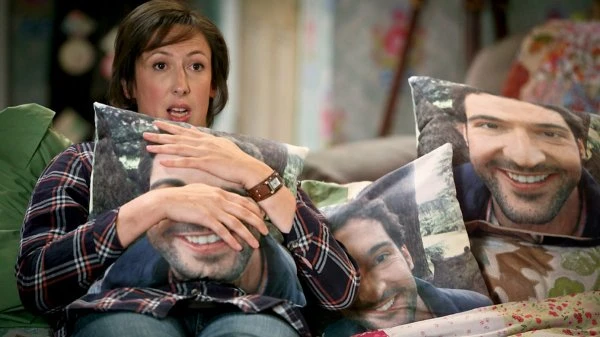
That she does indeed get her man is a complete feminist reversal of the other male fantasy, found in most television productions - Big Bang Theory being an obvious recent example - in which the relatively unattractive male wins the sexually more attractive female...except at this stage we begin to wonder if the Tom Ellis character is worthy of Miranda - which is the ultimate feminist triumph, when Cinderella turns out to be too good for Prince Charming.
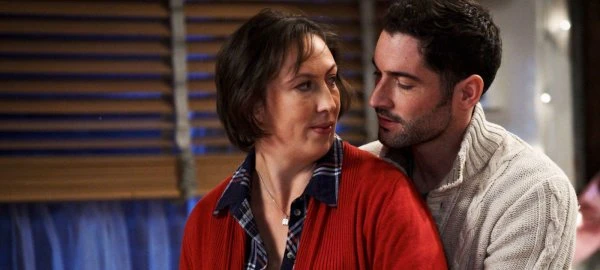
Miranda the character has been described as a "semi-autobiographical" version of Miranda Hart, who plays her and wrote her. Only Hart can say if this is true, but it seems unlikely. She was already well established in a successful career when she came to write and star in the show.
In some respects, Hart is a product of the system. The BBC seem to have nurtured her talent. Building her curriculum vitae, she had memorable supporting roles in Hyperdrive and Not Going Out, and served an apprenticeship of almost a decade before being given the lead in her own show. This was developed on radio before being promoted to television - where it was in turn promoted from BBC2 to BBC1. There it achieved ratings of over ten million - positively spectacular for a "sitcom" in the multi-channel age.
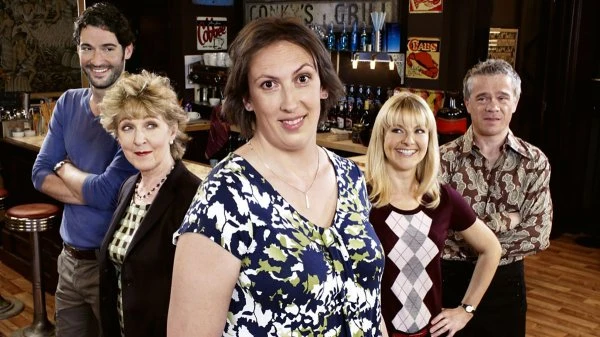
The BBC certainly had sufficient confidence in the project to invest in a very strong supporting cast from the start. Indeed, Patricia Hodge as Miranda's interfering mother came close to stealing the show. Previously best known as the icy Phyllida Erskine-Brown in Rumpole of the Bailey, Hodge demonstrates an equally sure touch for over the top comedy in Miranda, turning what could have been a very unpleasant character into "such fun" - to use one of her favourite catchphrases.
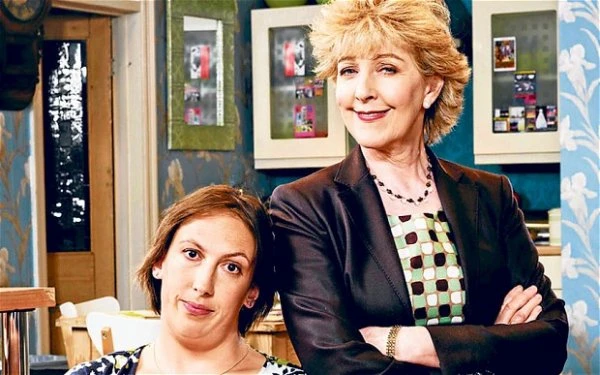
Another potentially unpleasant character who becomes surprisingly likeable is Miranda's old "school friend" - a dubious description - Tilly. At first, she shows an uncanny ability to put poor Miranda down with casual brutality, not least by still using her old nickname "Kong." She probably does not mean to be malicious, which somehow makes it worse. Yet, played by the wonderful Sally Phillips, she begins to reveal the brittle soul that lies beneath the brisk manner.
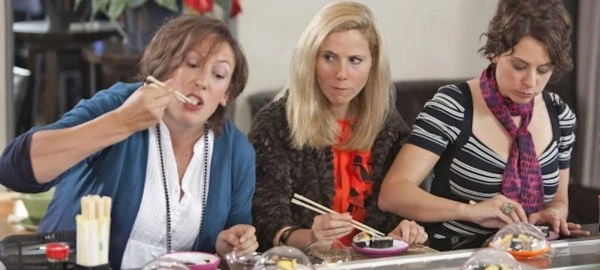
Phillips is one of this country's greatest comic talents and is criminally underused. She has the face of a pretty but slightly confused elf, sometimes mischievous, sometimes poignant. There are times when you just want to give her Tilly a big hug and wrap her in a warm blanket.
Sarah Hadland forms a nice double act with Hart as Miranda's best friend. It is a rare portrait of credible female friendship on television, full of the sort of in-jokes that people who are comfortable in each other's company develop over time. The Bechdel Test is passed with flying colours.
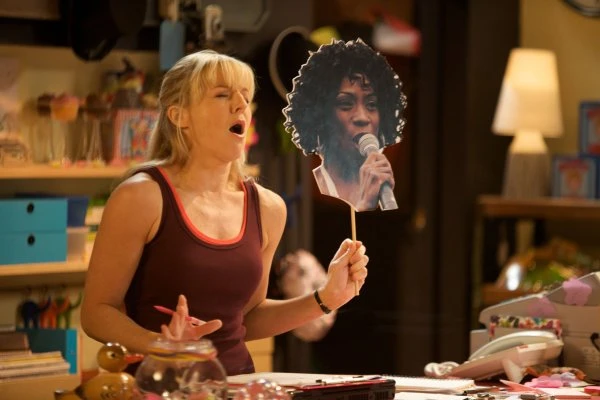
Hart also brought to the table a love of the shows with which she grew up in the 1970s - and a shrewd analysis of what made them work. The quickfire farce obviously owes a lot to her heroes Morecambe and Wise. Her soliloquies to camera and mock offence at the risqué are pure Frankie Howerd. Even the end credits evoke the style of Croft, Perry, and Lloyd.
Finally, from Fawlty Towers she learned to quit while she was ahead, a decision of great artistic integrity. If Miranda is not quite in the same league as the Cleese classic - hardly anything is - it leaves a similar legacy: it maintained its quality over 20 episodes and never got stale.
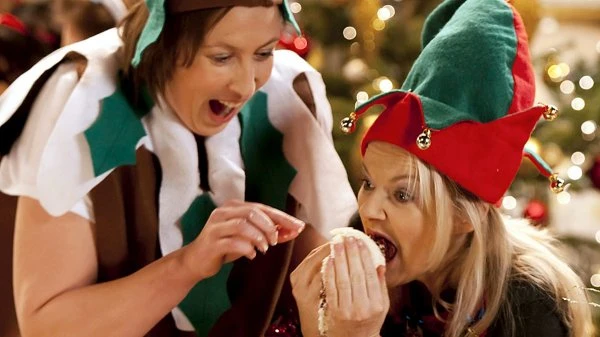
At the same time that Miranda was being filmed, Hart had a very successful "stand up" tour and also achieved dramatic acclaim in Call the Midwife. Since then, we have seen too little of her. Is she content now to rest on her considerable laurels? Or was she simply exhausted after all that hard work? Either would be understandable. Or perhaps she found - like Sally Phillips - that the cultural Establishment in Britain is keen to nurture talented women but does not know what to do with them when they prove to be successful.
At least she is down to produce - ironically along with Mayim Bialik and Jim Parsons from The Big Bang Theory - an American remake of Miranda. Apparently, the superb Bialik will play the lead and it will be set in a cat cafe - two good reasons to watch, either of which would be sufficient on its own for this reviewer. That said, working with cats on a television show sounds like a dangerous proposition - the sort of situation which would get the original British Miranda into all sorts of hilarious trouble. If Hart needs a good premise for a return, there it is.
John's Website can be found at John Winterson Richards
Seen this show? How do you rate it?
Seen this show? How do you rate it?
Published on April 17th, 2020. Written by John Winterson Richards for Television Heaven.


